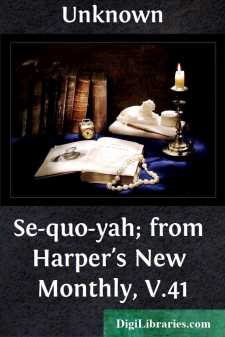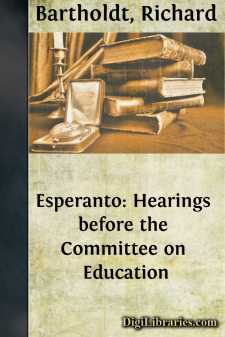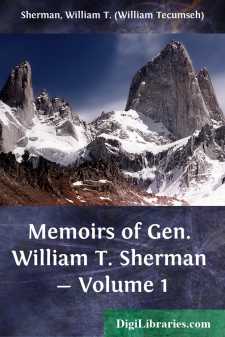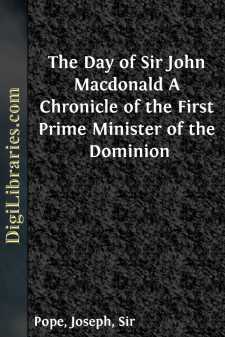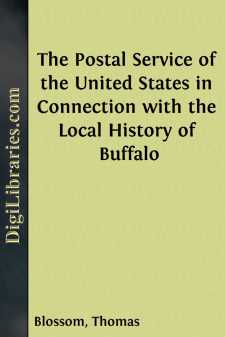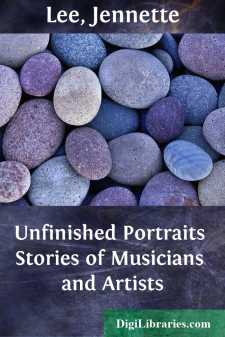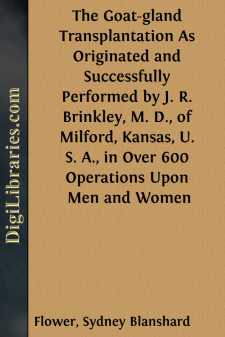Non-Classifiable
- Non-Classifiable 1768
Non-Classifiable Books
Sort by:
by:
Unknown
In the year 1768 a German peddler, named George Gist, left the settlement of Ebenezer, on the lower Savannah, and entered the Cherokee Nation by the northern mountains of Georgia. He had two pack-horses laden with the petty merchandise known to the Indian trade. At that time Captain Stewart was the British Superintendent of the Indians in that region. Besides his other duties, he claimed the right to...
more...
STATEMENT OF HON. RICHARD BARTHOLDT,A REPRESENTATIVE IN CONGRESS FROM THE STATE OF MISSOURI. Mr. Bartholdt. Mr. Chairman and gentlemen, I do not wish to occupy your time, for the reason that I can be here almost any time, while Prof. Christen has made a special trip from New York for this purpose, and I should like to give him all the time you can afford to devote to this bill. I merely wish to say, in...
more...
HISTORICAL ANALYSIS Francis Tresham, of Rushton, in Northamptonshire, has recently (September 11, 1605) succeeded his father, Sir Thomas Tresham (a great sufferer for the Roman Catholic religion), in an inheritance of at least five thousand a year, in present money; after having, as he says, spent most of his time overburdened with debts and wants, and resolves within himself to spend his days quietly....
more...
FROM 1820 TO THE MEXICAN WAR. 1820-1846. According to Cothren, in his "History of Ancient Woodbury, Connecticut," the Sherman family came from Dedham, Essex County, England. The first recorded name is of Edmond Sherman, with his three sons, Edmond, Samuel, and John, who were at Boston before 1636; and farther it is distinctly recorded that Hon. Samuel Sherman, Rev. John, his brother, and...
more...
by:
Joseph Pope
YOUTH John Alexander Macdonald, second son of Hugh Macdonald and Helen Shaw, was born in Glasgow on January 11, 1815. His father, originally from Sutherlandshire, removed in early life to Glasgow, where he formed a partnership with one M'Phail, and embarked in business as a cotton manufacturer. Subsequently he engaged in the manufacture of bandanas, and the style of the firm became 'H....
more...
by:
Thomas Blossom
No very satisfactory account of the origin and progress of the Postal Service of the country, in its more immediate connection with the local history of Buffalo, can now be compiled. The early records of the transportation service of the Post-Office Department, were originally meager and imperfect; and many of the books and papers of the Department, prior to 1837, were destroyed or lost when the public...
more...
by:
Eva March Tappan
IN A COAL MINE Did you ever wonder how beds of coal happened to be in the earth? This is their story. Centuries ago, so many thousand centuries that even the most learned men can only guess at their number, strange things were coming to pass. The air was so moist and cloudy that the sun's rays had hard work to get through. It was warm, nevertheless, for the crust of the earth was not nearly so...
more...
by:
Jennette Lee
The soft wind of an Italian spring stirred among the leaves outside. The windows of the studio, left open to the morning air, were carefully shaded. The scent of mulberry blossoms drifted in. The chair on the model-stand, adjusted to catch the light, was screened from the glare; and the light falling on the rich drapery flung across its back brought out a dull carmine in the slender, bell-shaped...
more...
AUTHOR’S PREFACE Though dealing exactly with a surgical subject, this book is a layman’s word to laymen. It is an attempt to say to the general public a few things about this amazing work of Dr. J. R. Brinkley, of Milford, Kansas, which he is debarred from saying for himself in this simple form. He has under consideration a book of his own covering the subject of Goat-Gland Transplantation, his...
more...
by:
James Parkinson
CHAPTER I. DEFINITION—HISTORY—ILLUSTRATIVE CASES. SHAKING PALSY. (Paralysis Agitans.) Involuntary tremulous motion, with lessened muscular power, in parts not in action and even when supported; with a propensity to bend the trunk forwards, and to pass from a walking to a running pace: the senses and intellects being uninjured. The term Shaking Palsy has been vaguely employed by medical writers in...
more...


